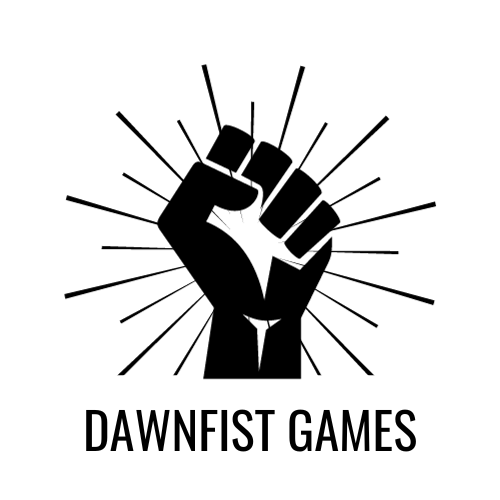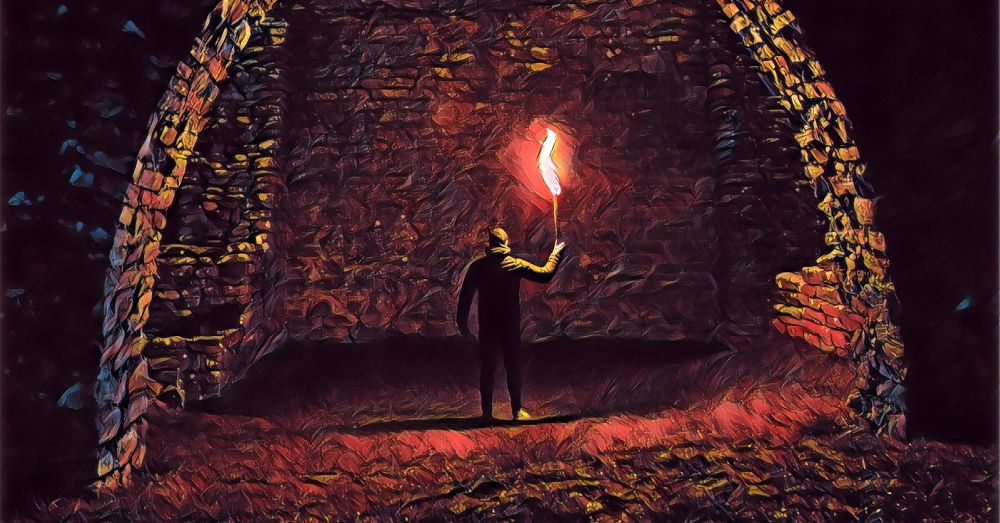Automate time tracking and keep tension high…
Dungeon exploration is a central part of the TTRPG hobby, it all started with most iconic game in the genre, Dungeon and Dragons, it’s right there in the name. There are of course hundreds of different RPG systems that aren’t about exploring dungeons, but I would dare say that most players definitely expect some dungeon crawling action if you invite them to a game night.
When I started designing Adventurous I wanted to pay special attention to dungeon exploration, and have dedicated rules and procedures for it, for two reasons.
- To give it ample attention and to cement it as a core part of the game. With a distinct set of rules you are expected to go dungeon crawling.
- Including procedures and rules supporting one of the core aspects of the genre would make the GMs job of running the game easier.
With that said, let’s take a look at the rules.
How the dungeon exploration rules work
Much like combat, dungeon exploration is divided into turns. During each turn of exploration the group of PCs can make one dungeon move, together as one unit.
A dungeon move is an action such as: “search a room for traps”, “carefully pick the lock of the big wooden door” or “study the mechanical contraption to try and figure out how the trap works.”
A dungeon move takes roughly ten minutes, thus each round of exploration is roughly ten minutes.
The GM can allow for two moves to be performed during the same turn, but this should be an exception and is generally only suitable when the party splits up.
To track time spent exploring a dungeon the GM uses six 6-sided dice. For every round of exploration in the dungeon the GM adds one of these dice to a pool at the center of the table.
When six moves have been made, one hour has passed and new torches need to be lit. It is also time to roll the encounter dice.
Rolling the dice
The dice that are gathered at the center of the table represent the current tension and danger level of the dungeon. The pool is rolled in two different scenarios:
- Recklessness – If the PCs make a move that causes noise the GM immediately rolls the dice currently in the pool. The dice are then put back in the pool which continues to build.
- The end of an hour – Once six dice have been placed in the pool, one hour has passed. New torches need to be lit and other time sensitive things need to be considered. At the end of an hour all six dice are rolled. Once rolled, the pool is emptied and the GM starts to build a new pool.
Reading the dice
To determine the outcome of the roll count the number of 1s and 2s and refer to the table below.
| Number of 1s & 2s | Effect | Description |
|---|---|---|
| 1 | Stress | The adventurers hear a noise, sense a smell or get some other glimpse of the dangers that lurk in the dungeon. The feeling of dread causes them to become stressed out. All actions taken until the party takes two turns (20 min) to rest are made with Disadvantage. |
| 2 | Danger approaching | The characters find themselves in a situation where it’s just moments until the horrors of the dungeon are upon them. It might be a patrol coming their way, or that they have accidentally entered the guard barracks. Either way, they need to decide how to act right now, or be the victim of the inhabitants of the dungeon. |
| 3 | Immediate encounter | The party is surprised by whatever is living in the dungeon or it’s minions. Combat ensues and the opponent starts! |
| 4 or more | Big setback | Something really bad happens. These situations are environment specific. Example situations: The corridor collapses, the floor collapses, part of the dungeon is flooded, the volcano erupts, etc. |
The many benefits of the system
It’s not complicated, and it’s not intended to be. It’s designed to align with the core ethos of Adventurous; “Simple but elegant, no math needed” and it achieves the following 5 things:
- Automates time tracking – Each dice representing 10 minutes, and the pool triggering a roll at the end of an hour makes it fantastically simple for the GM to keep track of time, both minutes and hours. No one has to wonder when the torches go out, or when that potion lasting an hour ends.
- Eliminates back to back encounters – It fixes the issue of the same event occurring multiple turns in a row, a common issue when using the “Overloaded Encounter Dice/Hazard system” e.g. torches going out three turns in and so on.
- Has room for both common and rare events – “Stress” is common, “Big setback” is very rare, no math or complicated modifiers needed to differentiate the two.
- Rewards playing cautiously – Making noise means rolling the dice, something the player always want to avoid.
- Adds tension and forces decision making – at the table, adding a dice for each dungeon move significantly increases the tension the players (not PCs) feel, and it also forces the players to think about their actions and plan accordingly. How many torches do they have left, can they press on? Is it worth it to spend 30 minutes clearing the cave in? Should they spend valuable supplies to create a shortcut back to the exit to save time the next time they enter the dungeon?
Another indirect benefit is that it can be used in any system, because none of it is directly tied to the mechanics of Adventurous. As long as you have six D6s you can use it with 5e, Mörk Borg, Shadowdark or OSE.
Closing thoughts
With just six D6s you can force your players to make difficult decisions, automate time tracking and make sure that tension stays high throughout the dungeon crawl. You achieve all the same things that other dungeon exploration procedures do, while at the same time making your life as the GM simpler.
If you like the system described above, then be sure to check out the Adventurous quickstart rules, and the game itself on DriveThruRPG, because everything in the game is built with the same mindset; to minimize unnecessary strain on the GM, to make the game as easy as possible to learn and as smooth as possible to run.

